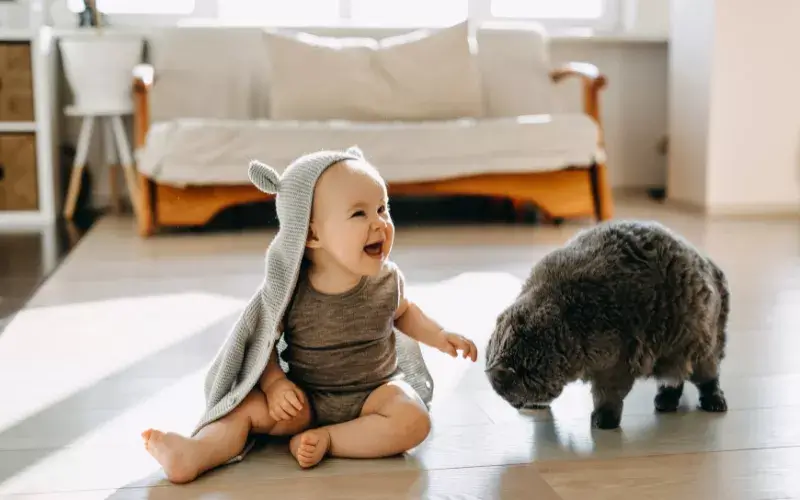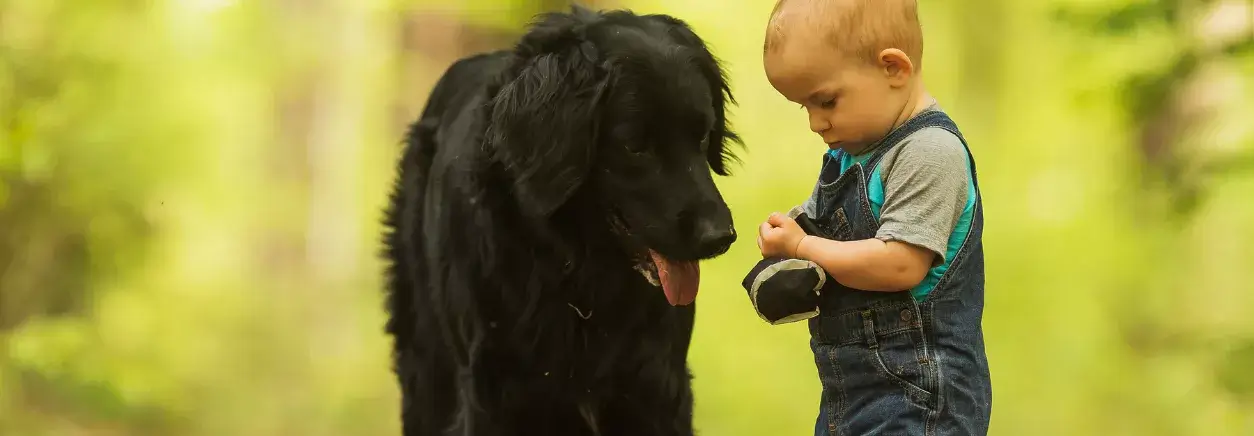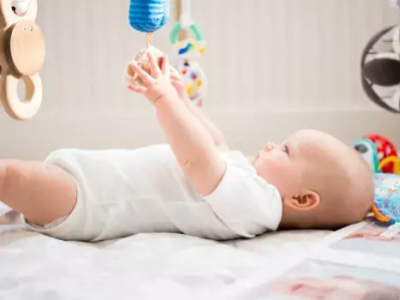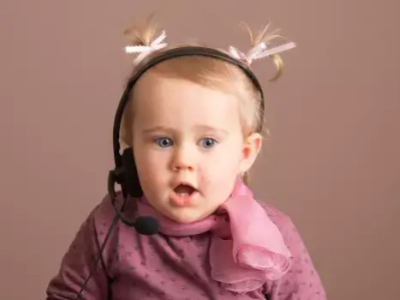
The Benefits of a Pet in Baby’s Life
Playing, confiding his secrets, observing, taking care of them, all these simple things allow the child to open up to the outside.
.webp)
Having an animal in the daily life of the family often allows the child to socialize but also to take responsibility.
Baby and dog
The pet does not judge, so the child can tell him his fears, his anger, his desires.
By its presence and sometimes its attention, the animal is present for the child, it seems to understand it and seems to listen to it. Thisreassures the child and can comfort him in his self-esteem.
Indeed, the child feels that he exists and is important to “someone”. Thus, the child can begin a process of social integration, with less anxiety and apprehension.
At a young age, the child must learn to distance himself from his parents and to act without them . Animals, especially dogs, will encourage this independence. The reassuring gaze of his animal allows the child to act without that of his parents. The company of the animal leads the child to learn to manage personal interactions. And it's much easier to do it with an animal before meeting other children. The resulting complicity also allows some children to break out of isolation.
Baby and animals

Building relationships with others means taking into account the existence of someone other than oneself and necessarily understanding their differences and needs.
The child begins with the animal: he becomes aware that it needs time to eat, drink, rest, go out. If he does not respect these needs, the animal will make the child understand.
The animal therefore allows the child to take responsibility. He is a great subject of occupation, of conversation, a playmate, a friend to whom he shows tenderness and attention. For the little ones who do not have animals it is a great desire; and if the child wants it so much, it's no coincidence, the the animal is good for the child, faithful to each other the animal and the child s hear wonderfully.
Not only do the animal and the child bond to each other but the animal can protect the child in the face to danger, to strangers,… In addition, the animal plays a major role in the awakening, education and learning of the little one.
Whatever the animal, it will encourage the expression of a child who tends to take too much refuge in silence. The little boy or girl thus learns to communicate better. First with his four-legged, feathered or furry friend; then with the others, young and old.
Thanks to the presence of the animal in the family, the child learns respect in general, but also respect for animals which like them cry, suffer, express or not their satisfaction…. The child learns patience, limits: when, for example, he goes too far with the dog, the animal knows how to make himself understood without being aggressive, as if he understood that the child is fragile, that it must be taken care of. But that's not all, the calming effect that the animal has on the child is also very often noted (and appreciated) by parents: baby crying that stops in front of fish swimming quietly in their aquarium, or when the dog snuggles or fusses around the little one.
As the child grows up, the animal very quickly becomes an essential member of the family: he quickly learns to say the word dog or cat, the kiss to say goodnight to the animal becomes a passage obliged before bedtime, the child observes, imitates the animal and learns friendship, the complicity of the dog which plays with him.

Many psychologists recognize the benefits and even sometimes the necessity of an animal: someone to tell their stories to, a companion so as not to be afraid of being alone at home, so many roles that the domestic animal fulfills wonderfully...


